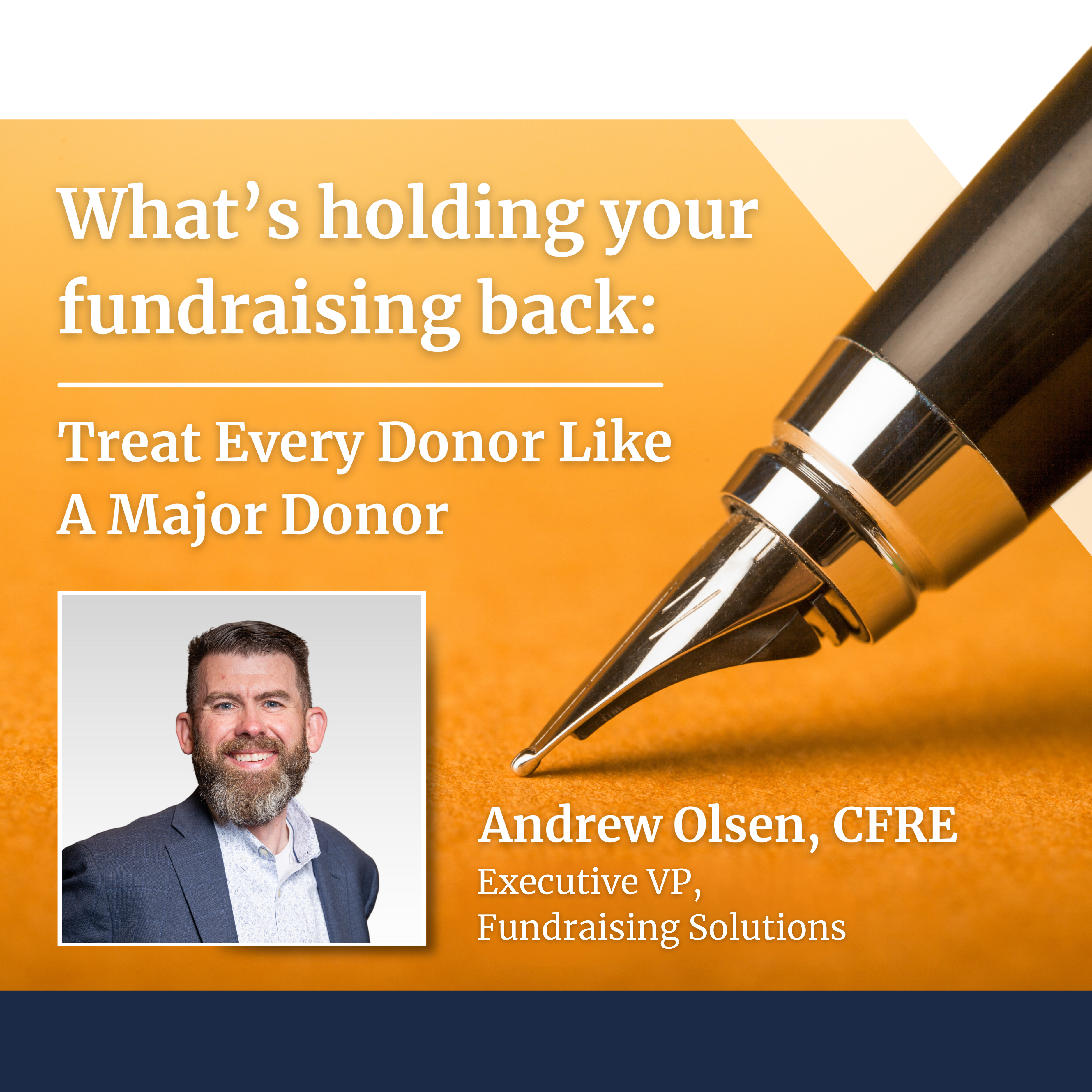There’s a lot of talk these days about the influence of technology on fundraising. From what CRM you use to your email platform, and whether your online donation platform is responsive or not. Not to mention the mad rush into programs like Chat GPT and other AI platforms. It’s as if fundraisers are the new gold miners of the 1800’s – all chasing the promise of wealth to be had just over the mountain.
None of those are bad things to think about and strategize around. I’ve got fairly informed and specific opinions about each one of them, in fact.
But they are only important to you inasmuch as what they allow you to do.
One of the biggest impediments holding fundraisers back from success is the way we’re forced to treat donors.
If you’ve been in the fundraising arena for any amount of time you know all too well that we often have one set of rules and tools for major donors, and a completely different (and more disappointing) set of rules for “low dollar” donors.
To a degree, this bifurcation of the way we engage donors is warranted.
For example, it’s not a wise use of your resources (your time and money) to fly across the country to visit personally with a donor who has only once given your organization $15.00 in 2013, but has not given since.
But it’s absolutely a smart play to make that same trip to visit with a donor who has given to you for 10 consecutive years, and who just last year gave you their first $10,000 gift.
The math just warrants one of those trips and not the other.
However, there are plenty of other stories we tell ourselves are true about major donors but not about donors who give smaller gifts.
Here are 10 examples:
1. Major donors want to know that you received their gift, and that it made an impact in the community
2. Major donors want to see, hear, and feel the change that is made possible through their giving
3. Major donors want a higher level of connection to your cause and value greater access to your leaders, board members, and program participants
4. Major donors want to know you value them for who they are, not just for how much money they give
5. Major donors want you to prove that they can trust you with their money
6. Major donors want to solve big problems in society
7. Major donors want a positive experience when they interact with you
8. Major donors want the opportunity to evaluate your programs and invest in areas that align with their personal values and philanthropic objectives
9. Major donors want a prompt and pleasant response when they have questions or concerns about your work and relationship
10. Major donors want to be seen and treated like insiders and partners, not just external cash machines
All of these statements are true statements about the desires and expectations of major donors. We survey and meet with major donors regularly on behalf of our clients. They regularly share these hopes and desires with us.
Here’s the important part that’s holding back your success in fundraising, though.
We tell ourselves that only major donors want these things.
But that’s just a story we’ve told ourselves because we don’t have the capacity to provide this kind of service experience to all of our donors – that’s just too much work, and potentially requires too much money to accomplish. At lease, that’s what we’ve always been told. Given those challenges, we naturally focused on providing these experiences to those few donors who could give the largest gifts today instead of spreading those experiences across our full supporter base.
But in reality, every donor wants these same things. When we provide these positive experiences to our donors, they tend to stick with us for the long haul. They invest more with us. They become raving fans, telling others about us, and advocating publicly for our shared mission. Not just because they believe in the work, but because they also value the experience.
And in turn, we secure the position of charity of choice in their minds and hearts (and wallets).
This is why it’s critical that you find ways to treat every donor like a major donor. It’s why we believe deeply that the end goal is building lasting relationships with your supporters, not just raising money today. In fact, we believe that relationship changes everything.
And it’s why we built a fundraising agency with the mandate to create experiences for every donor that honor their desires, and treat them as if they are our most important partners.
In essence, to treat every donor like a major donor.
If you want to explore a better way to engage your donors and increase net revenue for your cause, reach out today. We’d love to show you a better way to fundraise.

What's Holding Your Fundraising Back - Treat Every Donor Like A Major Donor
By
Andrew Olsen

